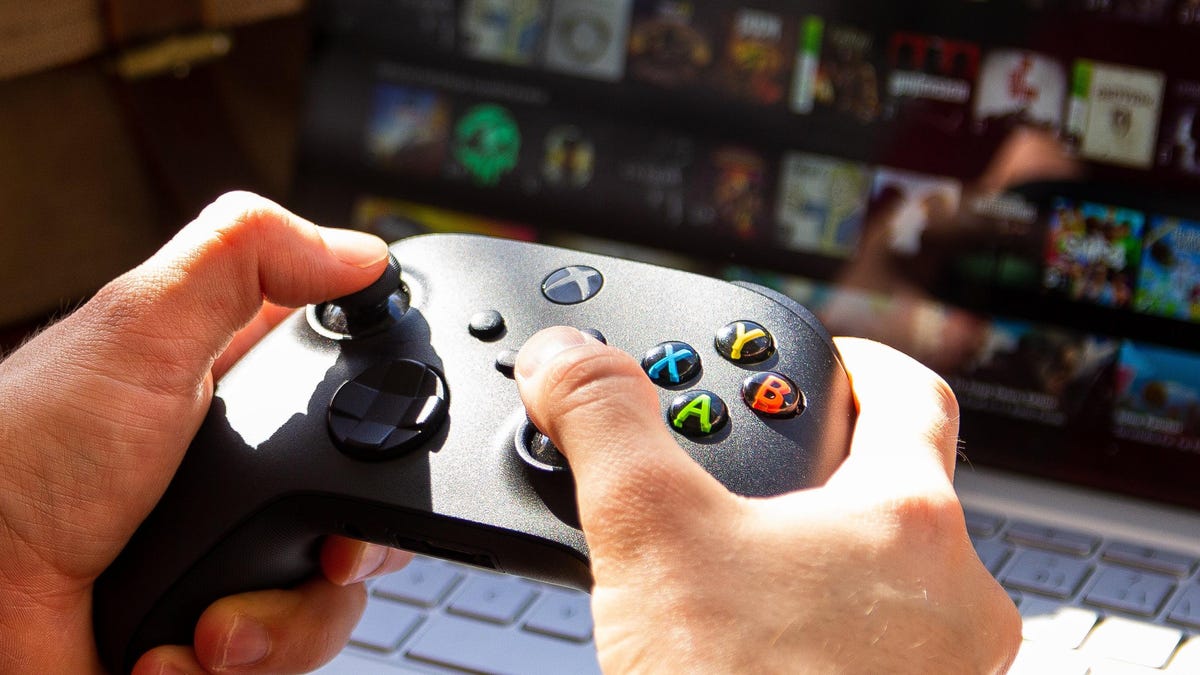Yes, You Can Game on a Chromebook - 5 minutes read

PC gaming is rightly considered a “high-end” computer task. While plenty of games will run on weak or outdated PCs and laptops, the biggest, newest games require powerful hardware and gaming-friendly operating systems like Windows or SteamOS—features that tiny productivity machines like Chromebooks lack.
Yet despite their meager hardware specs and ChromeOS’ threadbare game support, Chromebooks can actually be viable gaming devices...if you have the right setup.
Use cloud gaming services
Cloud streaming is the key to gaming within ChromeOS. Chromebooks can’t play Halo Infinite or Elden Ring natively, but they can play such games via cloud streaming, which connects you remotely to the powerful hardware actually doing the heavy lifting. You control the action with the controller or keyboard attached to your Chromebook, and the gameplay is streamed over the internet, right to your ChromeOS device’s screen. (This is the same way Android and iOS devices can be used to play the latest PC and console games.)
Several cloud streaming services are available on ChromeOS devices, either via the Chrome web browser or a dedicated ChromeOS app. These include Amazon Luna, Google Stadia, Nvidia’s GeForce Now, Shadow, PlayStation Plus Premium (previously PlayStation Now), and Xbox Game Pass Ultimate.
It’s important to note that all of the cloud gaming options are paid services with varying features and game libraries. In some cases you have to buy or rent the games you want to play (in addition to the monthly subscription fee); in others, you’re given access to a collection of games each month. Some services offer a combination of both options.
Here’s a brief overview of each service’s pricing and content options:
Amazon Luna: Base service included with Amazon Prime membership ($15/month or $139/year), includes a rotating library of games. Additional premium “channels” with more games available, between $5 and $18/month extra.
Google Stadia: Google Stadia lets you buy games a la carte and stream without a subscription fee, or you can access the Google Stadia Pro game collection for $10/month (free 30-day trial available).
PlayStation Plus Premium: PlayStation’s upcoming PlayStation Plus Premium ($18/month) will combine the current PlayStation Plus ($10/month) and PlayStation Now ($10/month) services into a single subscription that includes cloud streaming access to a library of over 740 games from all previous PlayStation home consoles and handhelds, plus free monthly games playable on PS5. PlayStation Plus will launch sometime in June this year. PlayStation Now cloud streaming is available until then.
Xbox Game Pass Ultimate: Xbox’s highest Game Pass subscription tier includes cloud streaming access to hundreds of Xbox and PC games available through a rotating collection, or purchased a la carte (not that not all games on the service support cloud streaming). New subscribers can join for $1 for their first month, then $15/month after.
Unlike other services, GeForce Now (starting at $10/month) and Shadow (starting at $30/month) do not offer game purchases or rentals. Instead, you pay for remote access to powerful gaming-capable PC hardware where you can play games purchased via an external marketplace like Steam or the Epic Games Store.
It’s also worth noting that if you have a gaming PC, Xbox console, or PlayStation 4 or 5 in your home, you can use remote play apps from Steam, Xbox, and Sony to play remotely on your ChromeOS device.
The games available will differ between services, so make sure you check out each one’s current collection to see which you like best. Recent ChromeOS leaks indicate Google will soon let you see which games are available through streaming services with a new gaming search aggregator on Chromebooks, but that feature hasn’t been officially announced yet. For now, you’ll have to browse each service’s library individually to see what’s available.
While the right service and games are the most important part of your Chromebook cloud gaming setup, there are a couple final elements to keep in mind.
You need a good internet connection
Since cloud streaming quality is dependent on your internet connection rather than your device’s actual hardware, you need to make sure your speeds are up to the task. Some services won’t let you subscribe without at least 15Mbs per second download speeds, but that’s just the minimum. And for the best experience, use a hardwired ethernet connection—either through your Chromebook’s built-in Ethernet port, or with a USB Ethernet adapter. If you’re playing wirelessly, make sure you’re close to your wifi router or are using a 5G mobile hotspot. Just remember: Input latency, service interruptions, and graphical quality fluctuations are always a possibility, even on the best connections.
Consider your input options
Finally, you want to make sure you can actually control the games you’re playing. Most PC games require a mouse and keyboard, which come built into your laptop, but connecting a full-size keyboard and external mouse will be more comfortable. Many games also support gamepads, which can usually connect to your ChromeOS device via USB, or wirelessly through Bluetooth.
With all those components in place, your Chromebook can be a fully capable cloud gaming solution, giving you access to many of the biggest new PC games (and even many console games) for a fraction of the price of building your own gaming PC.
Source: Lifehacker.com
Powered by NewsAPI.org